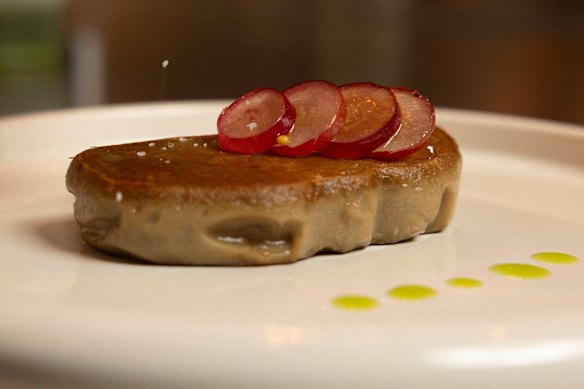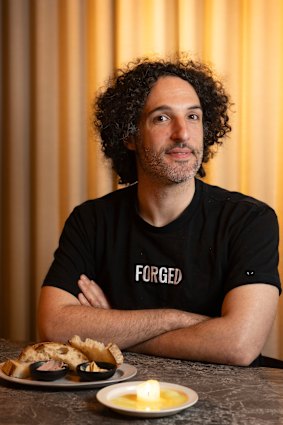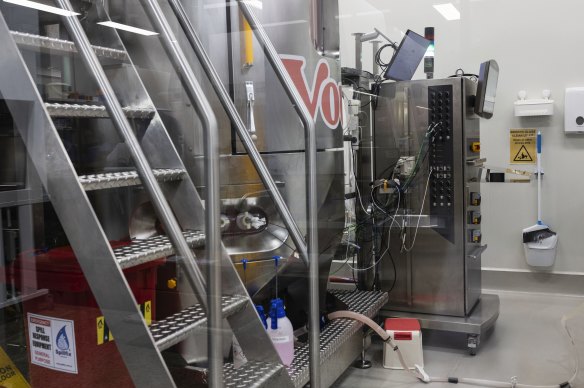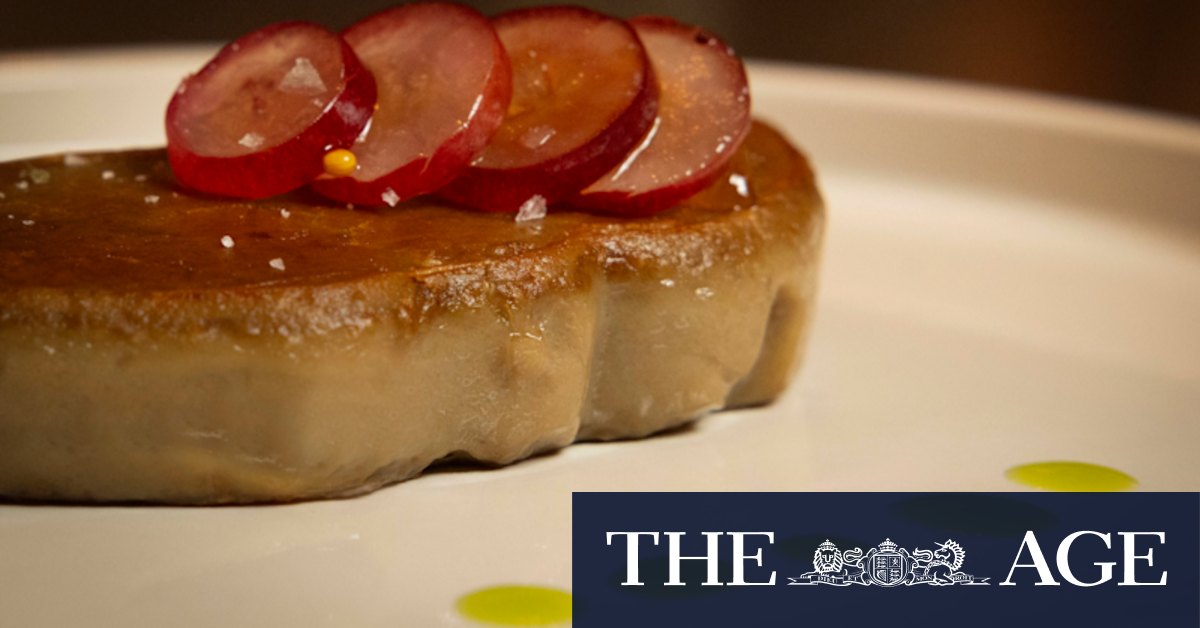They are more ingredients than finished products, leaving room for chefs to add their twist. Italian chef Mirko Febrille, of Singapore’s Bar Somma, has made a tortellini filled with Forged parfait in a hay-infused broth.
“Chefs are the artists of the food world. They’re the ones that ultimately drive food culture,” said Peppou.

Vow’s ‘Forged gras’ is made from lab-grown Japanese quail.Credit: Jessica Hromas
Working closely with chefs also ensures quality control and a positive experience for wary first-timers. “A lot of consumers’ first contact [with meat-replacement products] was in retail. They brought it home, they cooked it badly and they were like, ‘this shit product tastes like a hockey puck’,” said Peppou.
Chef and Vow ambassador Mike McEnearney will serve his popular sourdough bread with Pepe Saya butter and a cultured quail butter at Kitchen by Mike, and his new Melbourne restaurant inside 1Hotel, From Here By Mike, will feature a pan-fried “Forged gras” on a bed of lentils. The bar upstairs will serve Forged parfait on toasted brioche.

Vow CEO and founder George Peppou with some Forged parfait and a quail tallow candle.Credit: Jessica Hromas
“How often does something brand new come to market? That’s what got me,” McEnearney said. “I’d describe it [to customers] as a different way of farming … it’s an educational process,” he added. “It’s not replacing anything. It’s helping to support sustainable farming methods.”
Food regulatory body Food Standards Australia New Zealand (FSANZ) has also passed updated definitions of genetically modified food to address progress in gene technologies while maintaining strong food safety protections, which the regulator says brings Australia in line with international approaches and will ensure the right labelling and oversight.
“Our safety assessment confirms that many modifications achieved through new breeding techniques are equivalent to those from conventional breeding, which is widely recognised as safe,” said FSANZ chief Dr Sandra Cuthbert.
How lab-grown meat gets made
The process of making lab-grown or cultured meat, this masthead was told in a tour of Vow’s factory (sometimes referred to as Sydney’s first “meat brewery”), isn’t too dissimilar to the fermentation process in brewing beer.
A biopsy, or small tissue sample, of an animal – in this case, a quail – is taken and placed into a 20,000-litre temperature-controlled fermentation tank, which is designed to replicate the body of a quail. Hot water lines the tank, for warmth; oxygen and glucose are pumped in the tank, where the tissue scraping is given plenty of space to grow over the course of a month.

Meat cells are replicated in huge fermentation tanks at the Vow lab-grown “meat brewery” in Alexandria, Sydney.Credit: Jessica Hromas
“Harvesting” then occurs every two to three days for about a month, where three-quarters of the glucose mix is removed from the tank and topped up for the growing process to continue. The liquid is then poured into a separator, which sorts out the liquid from the solid meat matter, akin to curd, or blitzed chicken mince.
To sell their products, Vow had to undergo, and co-design, a lengthy regulatory process with food regulatory body – because the category of lab-grown meat didn’t exist yet.
Loading
“We are so new, we don’t fit into any of the boxes for the food system,” said Peppou. “Everything which is trivial, should be trivial, is really complex for us.”
Peppou’s first time trying his own products in a restaurant was April last year, alongside 14 influencers in a members-only club in Singapore. Now, he will be able to try it in his hometown with his parents at a six-course degustation at Italian restaurant Olio in Chippendale, or the Waratah Hotel with his mates.
Now that Vow has FSANZ approval, the NSW Food Authority will conduct a final audit before awarding a food manufacturers’ licence, which will allow it to sell in Australia.
It’s been a long journey for Peppou, who had to make 30 per cent of his staff redundant in January. The former biochemist is already eyeing other markets, including the UK, Middle East, and is working with nine regulators.
Vow is experimenting with different meat species, with Peppou planning to launch a fillet of quail meat this year and more centre-of-plate products to come. “We’re trying to change food culture.”
The Business Briefing newsletter delivers major stories, exclusive coverage and expert opinion. Sign up to get it every weekday morning.
